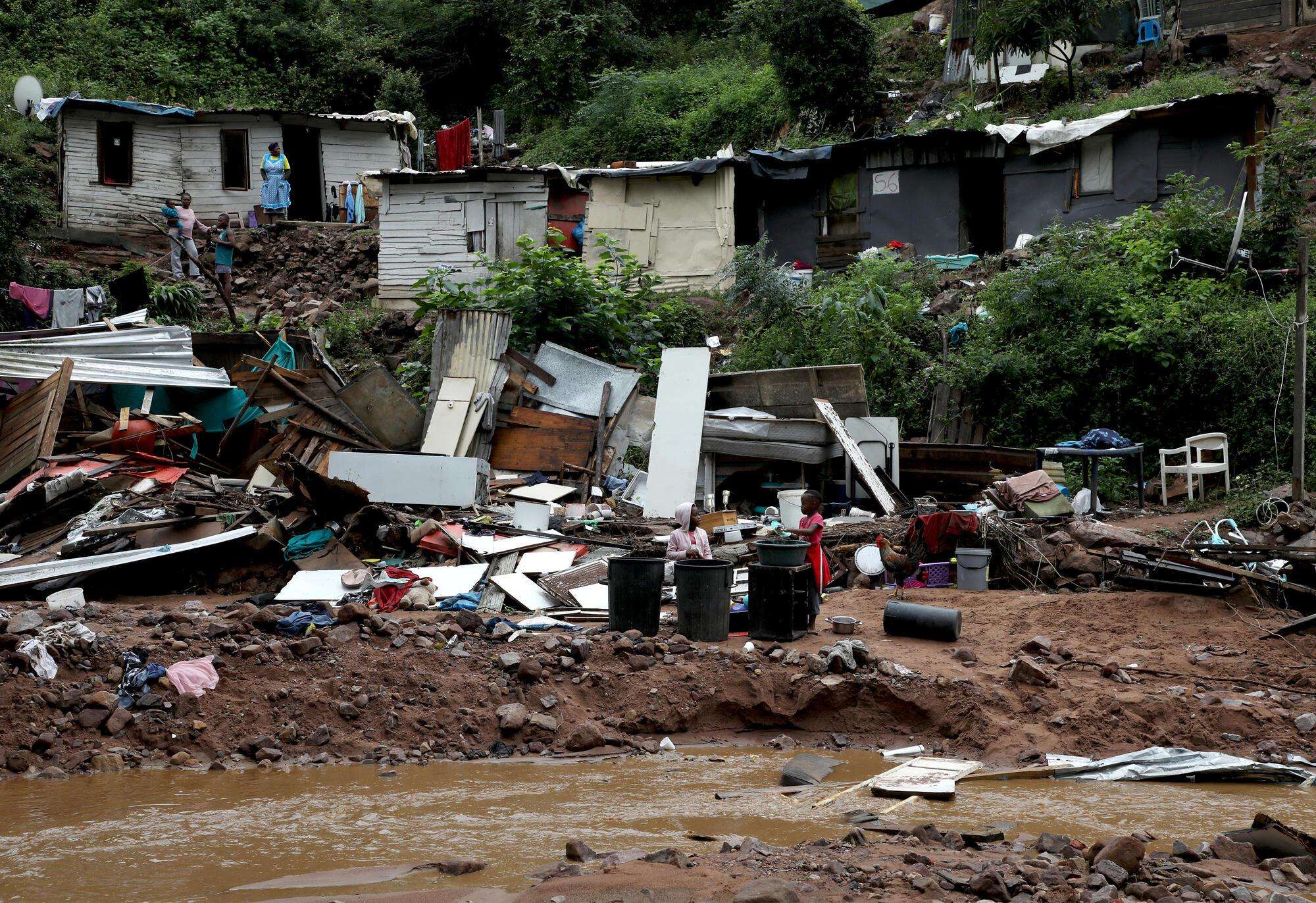NEW YORK/JOHANNESBURG, APRIL 22, 2022—Following catastrophic flash flooding and mudslides after torrential rains in the eThekwini region in South Africa’s KwaZulu-Natal province last week, vulnerable communities and health facilities are facing a crisis of clean water provision and adequate sanitation, said the international medical humanitarian organization Doctors Without Borders/Médecins Sans Frontières (MSF).
Major district hospitals and dozens of health clinics in eThekwini—a municipality of 3.7 million people—are currently without water after floods damaged water supply systems, and people struggle to access health services due to the scale of infrastructural damage. MSF teams are working to provide health care and necessities such as hygiene products, as well as to prevent waterborne disease outbreaks in the affected region.
“The city remains in crisis 10 days after the storm,” said Dr. Mani Thandrayen, medical team leader for MSF in Durban. “It is now primarily a crisis of water and sanitation provision for hospitals, clinics, and communities. Failure to get this right could spell a deepening health crisis characterized by waterborne diseases. We have been supporting four of the shelters since last weekend, helping to meet the immediate needs of residents with food, water, cookware, blankets, mattresses, and basic hygiene products.”
Approximately 40,000 people have been left homeless by the floods. Many displaced people have been sheltering for days in more than 20 schools, community halls, and churches in the eThekwini region around Durban—few of which have access to electricity, running water, and adequate sanitation for the hundreds of people sheltering there. Living in close quarters without proper sanitation can fuel the spread of waterborne disease outbreaks. Many of these people lost all of their possessions in the floods, including their medications for chronic medical conditions like HIV/AIDS, tuberculosis (TB), diabetes, and hypertension.
In addition to having distributed much-needed items to 500 people, MSF is working with the provincial and municipal health departments to provide direct medical care. MSF has also installed 25 portable toilets at three shelters and provided four water tanks for potable water storage to guard against disease outbreaks in the aftermath of the floods. MSF will continue providing support to clinics and shelters needing water and sanitation and is working with the authorities to explore the possibility of water treatment solutions, including drilling community boreholes to access clean drinking water.
During community visits, it was apparent to MSF staff that many traumatized people were reeling from the loss of family members and their homes and are in need of mental health counseling. A registered MSF counsellor, as well as several doctors and nurses, have since joined mobile health clinics that are being managed by local health departments. In the coming days, these teams will provide health services to all shelters across the municipality. These medical staff are treating wounds and ensuring people have access to chronic disease medications.
“We are living a daily tragedy,” said Nozipho Sithole, a resident of Ntuzuma community who lost her own home and is now helping to manage the shelter at Ntuzuma Community Hall. “I am so overwhelmed that I struggle to recall my own cellphone number.”
As extreme weather events are on the rise in Southern Africa, more heavy rains are forecasted in KwaZulu-Natal over the coming days, increasing the risk of worsening humanitarian conditions.
MSF has a long presence in South Africa, running many projects focusing on HIV/AIDS, TB, sexual and gender-based violence, and COVID-19. In KwaZulu-Natal, MSF currently runs a TB project in Eshowe.




